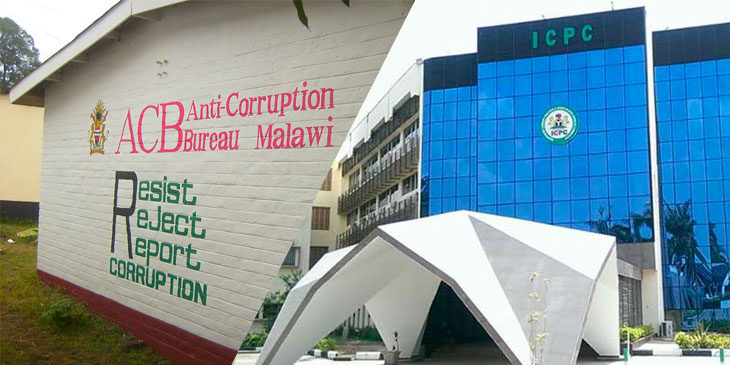Originally published on GI-ACE
Anti-corruption law enforcement in Africa is facing multiple challenges, ranging from a lack of resources to the difficulty of producing evidence that holds up in court. This blog post focuses on one aspect of anti-corruption law enforcement that has proven to be particularly challenging: the independence of most African anti-corruption agencies. Originally deemed one of their greatest strengths, our research in Malawi, Nigeria, and Tanzania shows that the agencies’ independence has turned out to be a major impediment.
The creation of anti-corruption agencies in Africa
During the 1990s and the early 2000s, many African governments drew up anti-corruption legislation and established anti-corruption agencies.[1] These agencies were vigorously promoted by bilateral and multilateral development agencies such as the World Bank, as well as international organisations such as the Financial Action Task Force (FATF). The agencies were seen to be key to the promotion of the good governance agenda and the global fight against corruption, which had gained prominence since the end of the Cold War.
The hallmark feature of these newly established government agencies was their independence from the rest of the government apparatus. This was deemed to be crucial for their success. During the 1990s, there was concern in the development community that, without institutional and legal independence, the anti-corruption agencies might fall prey to the inertia and inefficiency seen to affect government departments more broadly. As result, the points of connection to the rest of government, especially police and the Ministry of Justice, were kept to a minimum to prevent these other government departments from exercising undue influence on the fledgling corruption-busting bodies.
Anti-corruption agencies’ distinct features
One important dimension of the anti-corruption agencies’ independence is their organisational set-up and culture. The agencies have their own terms of service, offering much better salaries than regular government departments. In contrast to the police, the agencies have deliberately recruited university graduates. This also served to exclude from the recruitment pool police officers, many of whom did not have degrees when the anti-corruption agencies were created. This resulted in a different organisational culture and a lack of forensic experience in anti-corruption agencies, at least in the early stages. The distinct set-up of the anti-corruption agencies reflects the thinking about public management and civil service reform at the time of their creation. Independent anti-corruption agencies were supposed to function as so-called enclaves acting as drivers of the implementation of good governance policies.
Overlaps and rivalry
As soon as the newly established anti-corruption agencies embarked on their mission, however, and started to investigate and prosecute corruption offences, their independence often proved to be an obstacle rather than an asset. The new agencies, distinct in make-up and culture, tended to conduct their investigations completely separately from the police, resulting in frequent overlap, even rivalry and no coordination. This often negatively affects the evidence gathered and, in turn, the strength of the cases brought to court. In settings where resources are extremely limited, the lack of coordinated investigation is bound to undermine the efficiency of law enforcement efforts. In Malawi, for example, police and the Anti-Corruption Bureau (ACB) tend to operate in parallel without sharing information and evidence in the early stages. Apart from the failure to conduct more efficient investigations, this may contribute to a lack of trust and rivalry. In Nigeria, the situation is even more complex with two anti-corruption agencies, the Independent Corrupt Practices Commission (ICPC) and the Economic and Financial Crimes Commission (EFCC).
Friction also characterises the relationship between the anti-corruption agencies and the Director of Public Prosecutions. In both Malawi and Tanzania, the anti-corruption agencies require the consent of the Director of Public Prosecutions (DPP) to prosecute cases. This is one of the few provisions explicitly addressing the interface between the different law enforcement agencies. The required consent for prosecutions has been contested and attracted criticism for giving the DPP too much influence, especially in Malawi.[2]
Political influence
Contrary to the original aim, the anti-corruption agencies’ independence has not proven to be an effective safeguard against political influence. Presidents and their allies are still able to intervene in the anti-corruption agencies’ investigations, as the Director General is appointed and – crucially – dismissed by the President. For example, in Malawi very few Directors of the ACB have served a full term, and many of those who were prematurely dismissed either attracted the President’s ire or were dismissed when a new President was elected. This highlights the anti-corruption agencies’ vulnerability to political influence in spite of their independence from the rest of government.
Lessons learned
A few lessons can be learned from this state of affairs:
- It is key to strengthen and develop strategic and tactical inter-agency cooperation through concrete measures such as inter-agency task forces, a model that has worked well in the United States, for example.
- Donor agencies and governments ought to adopt a comprehensive approach including the police and the Director of Public Prosecutions rather than focusing on anti-corruption agencies alone.
- The anti-corruption agencies’ independence from the Presidency and the political elite should be further strengthened by means of robust vetting procedures, rules of nominations and appointments and, even more importantly, enforcement of regulations regarding dismissals and suspensions from service. It is key to the independence of officials that their employment is not subject to ad hoc executive decisions. Other bodies, such as parliamentary committees and public service commissions, should be involved in recruitment and oversight.







